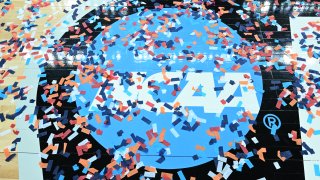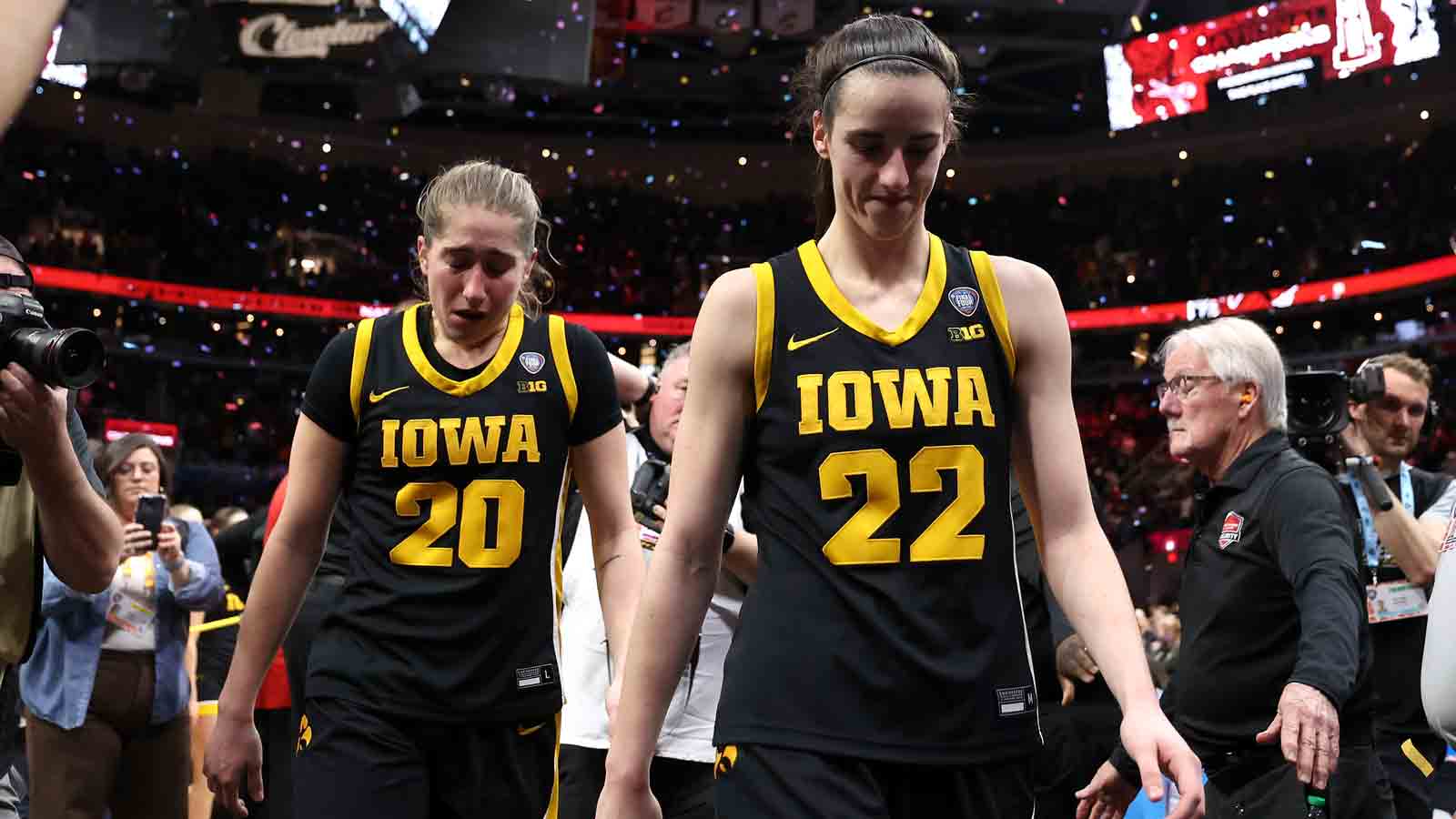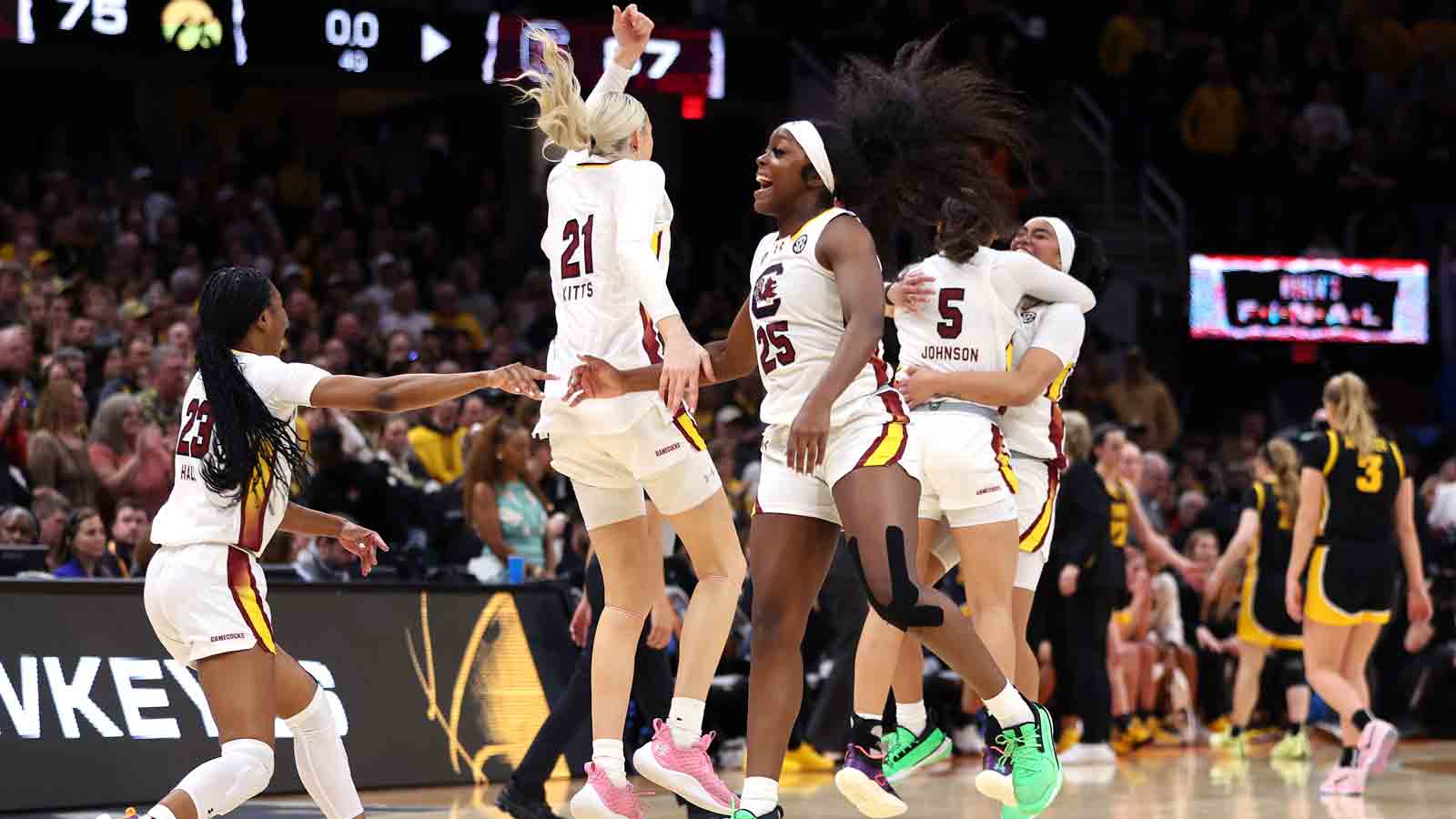
College basketball stars such as Caitlin Clark and Angel Reese have captivated sports fans everywhere with their skill and determination, but their meteoric rise is also shining a spotlight on the NCAA’s name, image and likeness policy that allows student-athletes to make money from their personal brand.
Ever since a landmark decision by the Supreme Court in 2021 paved the way for athletes to monetize their brand and pursue “education-related benefits,” the federal government has done nothing to provide structure or guardrails for how that would work.
Some 30 states have passed their own name, image and likeness (NIL) laws, while a series of court decisions have raised questions about what universities can and cannot do in the recruitment process.
The resulting vacuum has been filled by “collectives,” or third-party organizations formed by deep-pocketed donors and school supporters who can pool money and offer NIL deals to athletes — in some cases effectively creating a bidding war.
We've got the news you need to know to start your day. Sign up for the First & 4Most morning newsletter — delivered to your inbox daily. >Sign up here.
The chaos that’s ensued has rankled the likes of Alabama football coach Nick Saban, who voiced his support for traditional NIL opportunities but railed against this “pay for play” model at a congressional roundtable last month.
“I don’t think that’s the spirit of college athletics,” Saban told the panel, which was hosted by Texas Sen. Ted Cruz. “I don’t think that’s ever been what we want the spirit of college athletics to be.”
Since the Supreme Court’s 2021 decision in NCAA v. Alston, many student-athletes have seized on lucrative opportunities that use their name, image or likeness. Iowa’s Clark has inked deals with State Farm, Nike and Gatorade, among others. But despite the intense spotlight for the biggest names, the reality is there are approximately half a million athletes competing under the NCAA and tens of thousands who stand to benefit from making connections and earning money from their NIL rights.
For Bailey Ortega, a fifth-year volleyball player at Louisiana State University who transferred from Iowa this year, it’s about developing relationships, cultivating a brand and seeing where that takes her.
“For me, it was a good opportunity to find different avenues outside of my sport and use my passions,” Bailey told NBC News on campus recently after a spring practice. She said one of the first things she created after the Supreme Court’s ruling was her own line of merchandise, with some of the proceeds going to University of Iowa Children’s Hospital.
Since then, Ortega has signed a deal with software company Hudl and led conversations about athlete empowerment at events like ESPNW Campus Conversations.
But the patchwork of state laws — and the absence of any federal legislation — has led to lawsuits challenging the NCAA’s ability to crack down on certain recruitment practices and made business dealings at the college level much more confusing.
Recently, a federal judge dealt a massive blow to the NCAA and its attempts to investigate several schools after the Tennessee and Virginia attorneys general sued the organization.
“Everyone’s finally taking this situation very seriously,” said Darren Heitner, a sports lawyer who teaches at several universities and represents high-profile athletes at both the collegiate and professional levels, including college basketball stars Haley and Hanna Cavinder and the Golden State Warriors’ Draymond Green.
“Coaches, athletic directors, conference commissioners — they’re all panicking because they’re afraid of the unknown,” Heitner said. “They don’t know whether the system is sustainable.”
But Heitner, who was at the roundtable, pushed back on Saban’s argument that “whoever wants to pay the most money, raise the most money, buy the most players is going to have the best opportunity to win.” Collectives, Heitner says, offer “inducements” tied to enrollment at a particular college and perhaps social media responsibilities or other deliverables, but not performance on the field.
These collectives and NIL opportunities give athletes more power over the NCAA, conferences and colleges, and Heitner thinks this is why some prominent industry figures are so riled up.
“It’s driving coaches who have been in the business for decades absolutely nuts because they understood the secret sauce, they built the formulas that withstood the test of time,” Heitner said. “And then all of a sudden … everything changed.”
As members of Congress from both chambers and parties have introduced legislation — from creating a partial “antitrust exemption” for the NCAA, to a revenue-sharing structure to pay players, to special rules for the highest-performing programs — there’s been no real movement on Capitol Hill, and the clock’s ticking.
Stuck in the middle are the universities such as LSU trying to guide students in the right direction and maximize their opportunities.
Following the Supreme Court decision, the school formed its own NIL office headed by Taylor Jacobs, a former athlete who spent years working in NCAA compliance.
Jacobs says she’s been amazed by what athletes have been able to accomplish through NIL, from helping to subsidize the education of their siblings to setting up a fund to help other female student-athletes.
“At the end of the day, it’s our student-athletes who are putting LSU on the map and helping create this LSU brand, and they are capitalizing on it,” Jacobs said.
This article first appeared on NBCNews.com. Read more from NBC News:



